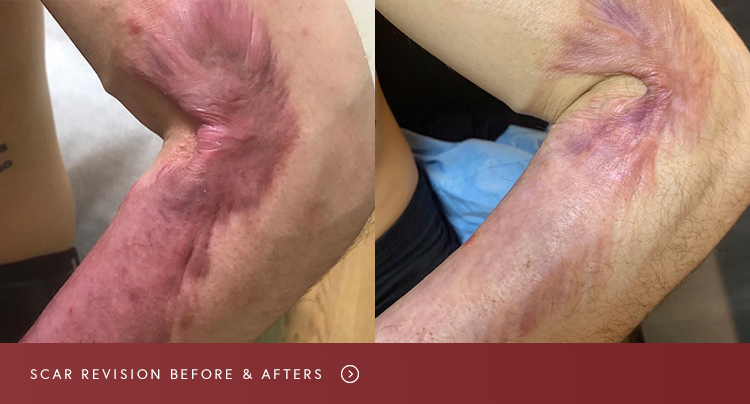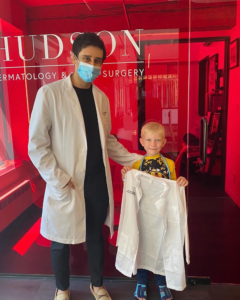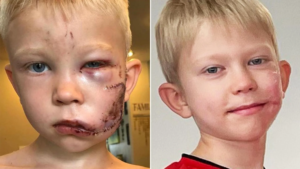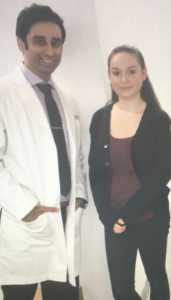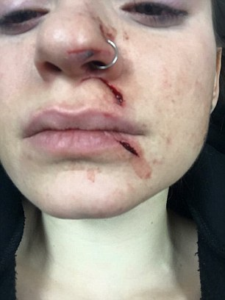Scar Revision
Scars are a common cosmetic concern, especially on the face. Scarring is a natural part of wound healing. Any wound to the skin including an injury, a burn, surgery and acne can cause scarring. Once a scar forms it is permanent. Scar revision therapy is intended to improve the appearance of the scar, its tone and texture so that it blends in with the surrounding skin. Fortunately, there are many good options to minimize the appearance of a scar. The right treatment for you depends upon various factors like the type of scar, its location, thickness and age, as well as your skin type.
Scare institute
Laser Scar Revision
We specialize in laser scar revision. Our cases have been featured both nationally and internationally and our techniques have been shared around the world. At Hudson Dermatology and Laser Surgery, our focus is around healing you to the best of our abilities. It’s not an easy journey but we are in it together. We use cutting edge devices and depending on the type of scar and severity, also coordinate care with surgeon colleagues and other parts of the medical team. We specialize in complex traumatic scars, acne scars, and burns.
Dr. Dhaval Bhanusali and Dr. Kiran Mian of Hudson Dermatology & Laser Surgery are board-certified dermatologists. They are widely regarded as experts in scar revision.
Hudson Derm in the Press
Dr. Bhanusali x Amanda Morris:
Chelsea slashing victim makes amazing recovery thanks to dermatologist
To Read More About Amanda’s Story: ABC News, Daily Mail, Fox NY
Dermabrasion is a safe and effective method to treat scarring, particularly rough or elevated scars. Using a special tool, the procedure removes the upper most layer of skin. As the skin heals, new skin replaces the old to improve the appearance of the superficial scars, making them less visible. Typically, a 50% reduction in scarring is considered a good result.
Dermal fillers are valuable to fill in depressed or concave scars. The improvements can last for months or up to a year, depending on the filler chosen. Repeated treatments are necessary to maintain the results.
Steroid injections can be used to soften and shrink hard scars like keloids and hypertrophic scars. Treatments will improve the size, texture, and appearance of raised scars.
Fat transfer therapy involves injections of your own fat that is retrieve from your thighs, buttocks or abdomen, and injected to fill depressed scars. Because your own tissue is used, there is no risk of allergic reaction. A few treatments may be needed to achieve desired results.
Subcision is a minor surgical procedure designed to treat depressed scars by releasing hard and fibrous scar tissue, lifting the depression. A filer can be injected to raise any depression remaining.
Laser therapy treats thick, red, large, indented, raised scars with a special vascular laser (a pulsed dye laser) to reduce or eliminate hyperpigmentation. Usually pulsed dye laser treatment is done first, followed by CO2 laser treatment to reach the depth of the scar
An IPL Photofacial can treat hyperpigmented acne scars.
Chemical peels, especially TCA peels are good for pitted acne scars. Deep peels go deep into the skin and can take several weeks to heal. They treat the entire face and produce smoother, more youthful looking skin.
Laser skin resurfacing can penetrate and break down scar tissue without damaging healthy skin. An added benefit is the stimulation of collagen production which will naturally fill and recontour depressed acne scars. Laser skin resurfacing is good for pitted acne scars. Healing takes about 7-10 days but will produce smoother, more youthful looking skin. It cannot be used while you still have acne breakouts.
Deep severe acne scarring is best treated with surgical scar revision because these scars tend to be under tension and surgery can release the tension. Surgery will leave a scar, but it will be less visible and more acceptable than the scarring that was removed.

